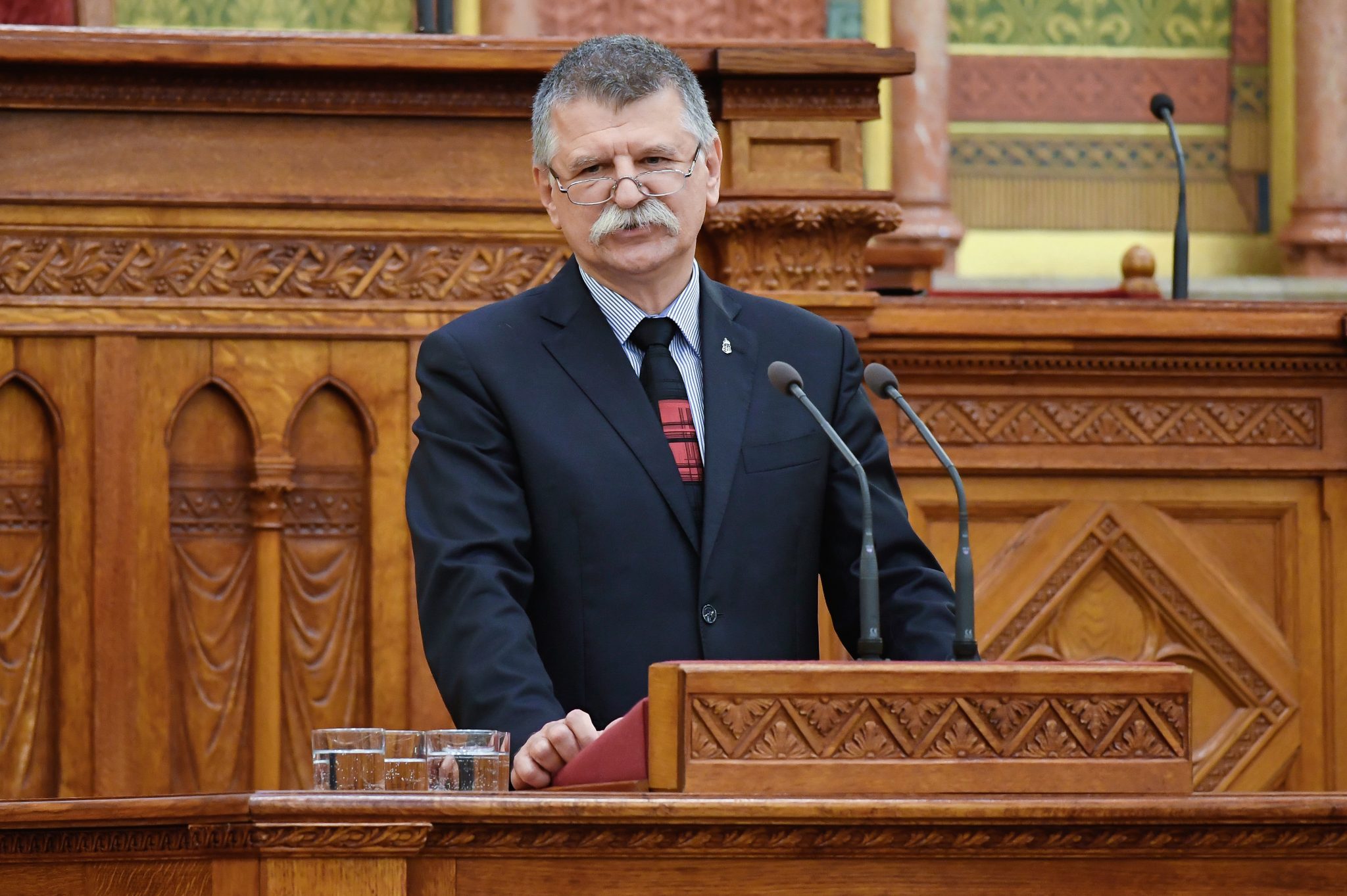
Those working on the regime change in 1989 were proud to achieve a peaceful transition, László Kövér said.Continue reading
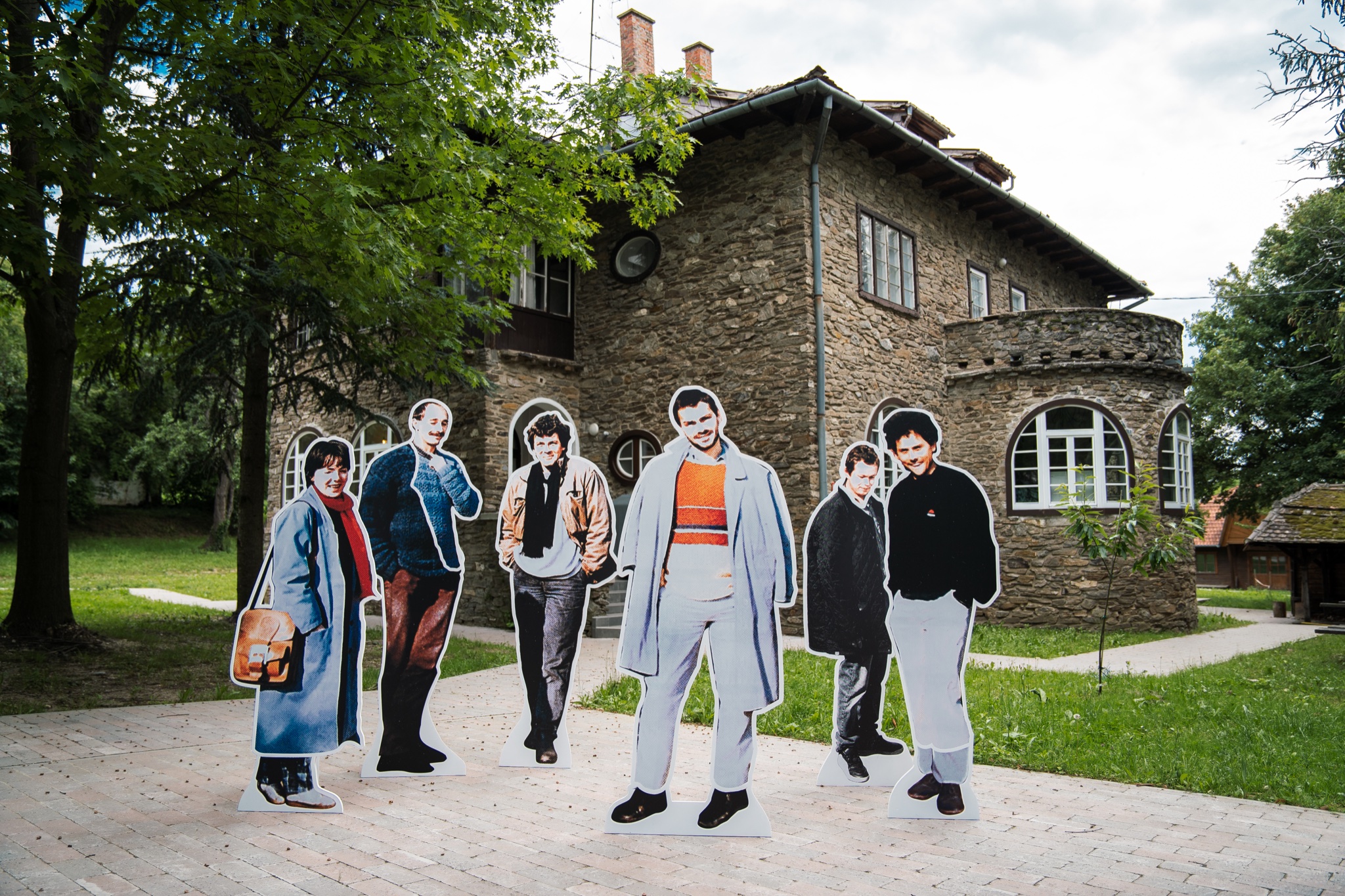
When presenting the history of Hungary’s regime-change in the nineties, specialized literature usually refers to a favorable development of the political processes among the great powers, and focuses mainly on the events that took place in Budapest. Unjustly, however, little is said about the fact that the fall of communism was preceded by a slow fermentation process, a general social discontent from below, for which the colleges of higher education provided the institutional framework. There is even less mention in the chronicles of the fact that the only major special college outside Budapest, in Szombathely, was founded and named after the great Hungarian writer, László Németh (1901-1975).
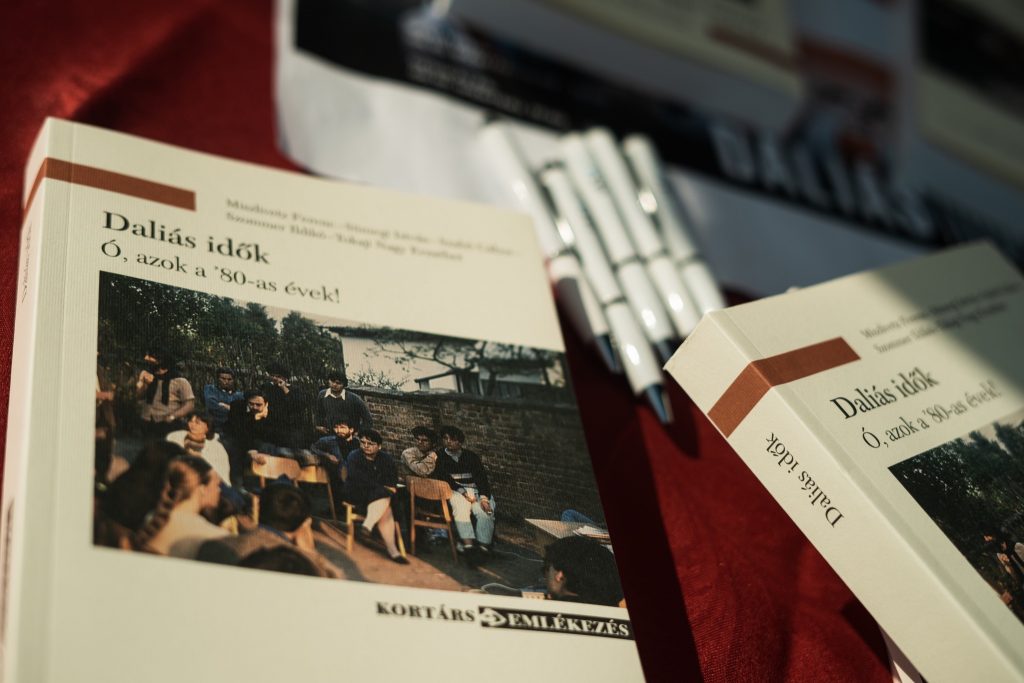
Photo: official Facebook page of iASK
A volume of the Institute of Advanced Studies Kőszeg (iASK) (Felsőbbfokú Tanulmányok Intézete), published by Kortárs Publishing House under the title Heroic Times (Daliás idők), traces the history of the Németh László Special College in Szombathely in a national and international context. The authors of the book, Ferenc Miszlivetz, István Sümegi, Gábor Szabó, Ildikó Szommer, and Erzsébet Tokaji Nagy, presented the book on Saturday together with László Kövér, President of the Hungarian Parliament and former student of the Bibó Special College at the Stirling Villa in Velem, and opened an exhibition on the subject.
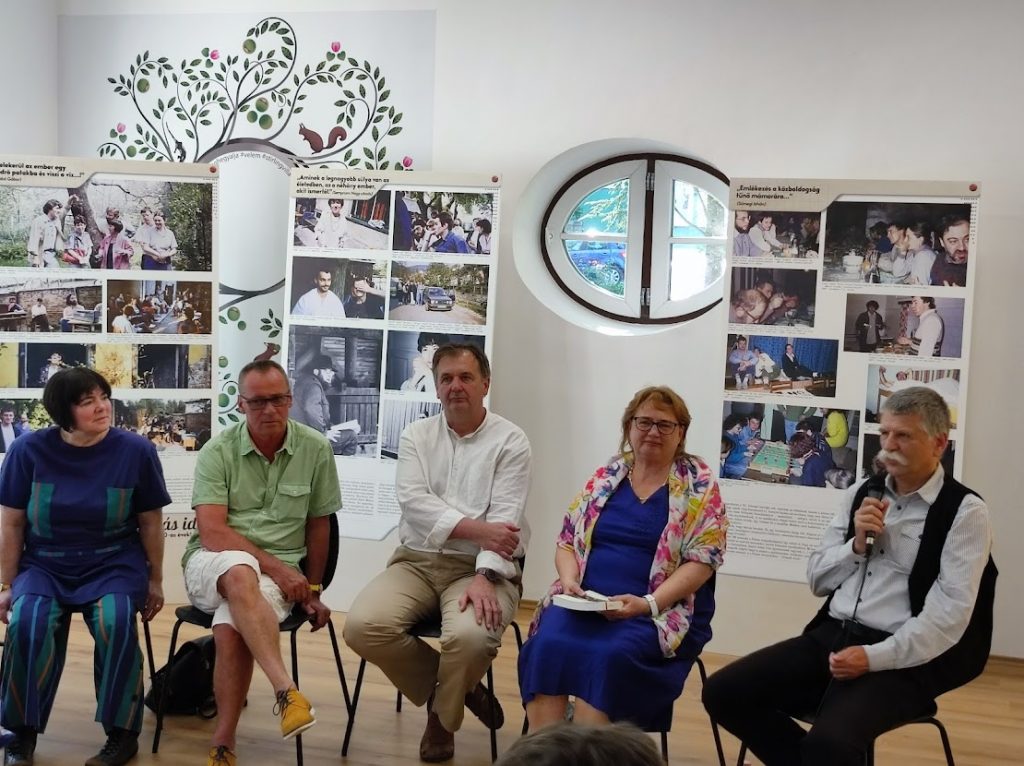
Erzsébet Tokaji Nagy, Gábor Szabó, István Sümegi, Ildikó Szommer and László Kövér (l-r) at the book launch in Velem (Photo: Ungarn Heute)
The book captures the unexplored part of the first years of the democratic transition in Hungary, the moment that elevated the movement of special colleges in Hungary above the country’s political opposition. It introduces the most important personalities of the time, provides a glimpse into the minutes of one of the college meetings – which happened to be held in Velem – attended by László Kövér, Tamás Fellegi, Gábor Fodor, and Viktor Orbán, and a preview of the relevant secret service reports.
Ferenc Miszlivetz, director general of iASK, emphasized at the book launch, as well as in his published study, that the Németh László Special College has placed more emphasis on culture, literature, film, improving the quality of education, and on social sensitivity, while Budapest student groups focused increasingly on issues of major policy and change. Although the young people sometimes crossed paths, they soon parted ways. New generations were needed at the top of political power, in science, in civil society, in education, in higher education, in cultural life, and in the social sphere.
Erzsébet Tokaji Nagy, one of the editors and authors of the book, emphasized at the launch that the book is not only a nostalgic memory of the past, but also a microhistory and a reckoning, an opportunity to confront our dreams and ourselves from 30 years ago with the present, and to look to the future without forgetting that time.
László Kövér said he had been a member of the Bibó Special College, the second established in the country in 1983. “At the meetings of the colleges, we experienced our own generation’s strength, that there was an intellectual strength in this community, that we did not have to rely on the intellectual paternalism of previous generations. This generational experience shaped the period from ’81 to ’89,” recalled the President of the Hungarian Parliament.
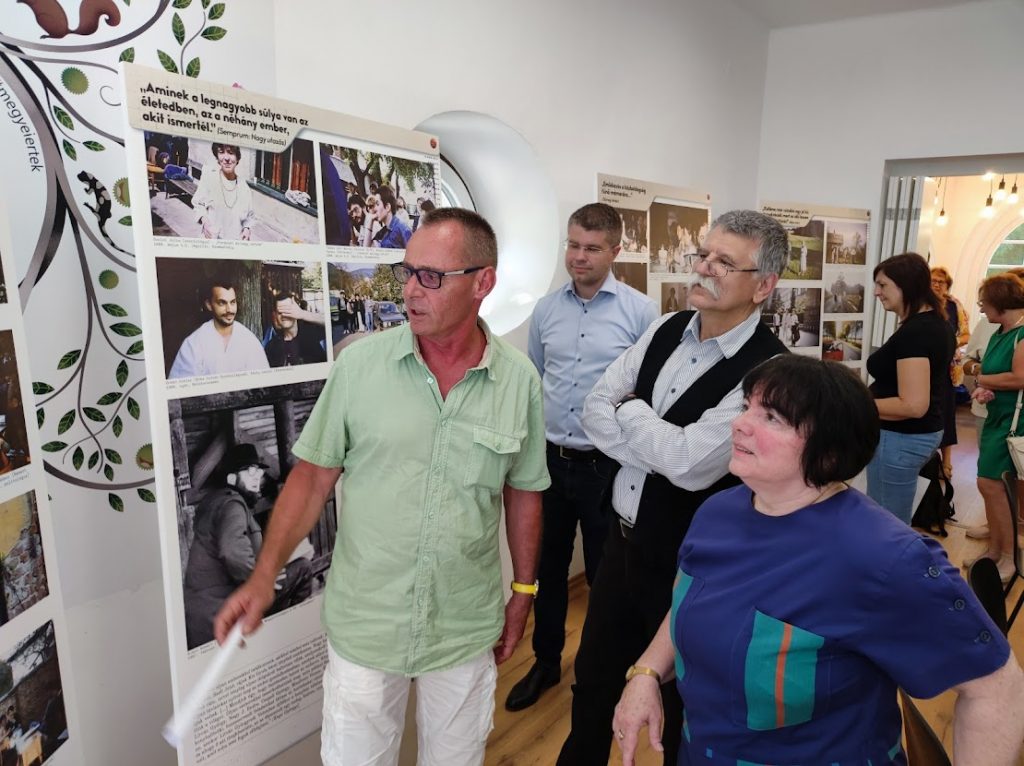
Gábor Szabó, Péter Ágh, László Kövér and Erzsébet Tokaji Nagy take a look at the exhibition in Velem (Photo: Ungarn Heute)
In his speech, István Sümegi, researcher of iASK, summarized the years at the Németh László Special College as a kind of “collective happiness.” For him, this fellowship meant the joy of thinking together, freely, and searching for solutions to existing problems.
Gábor Szabó, secretary of the Németh László Special College and former editor of the magazine “Lookout Tower” (“Kilátó”), emphasized in his recollection the democratic character of the organization: the post of secretary was voted on annually.
Ildikó Szommer, former editor of “Kilátó,” emphasized at the book launch that the journal had become a forum of free expression since the mid-1980s, and that the publicists who determined the journal’s profile came from among the members of the College. To illustrate the critical attitude of the editors, she recalled that an article was not allowed to appear in the newspaper, because according to the justification, it was not good enough, even though the author was one of the key figures of the youth opposition movement of the time, later Prime Minister Viktor Orbán.
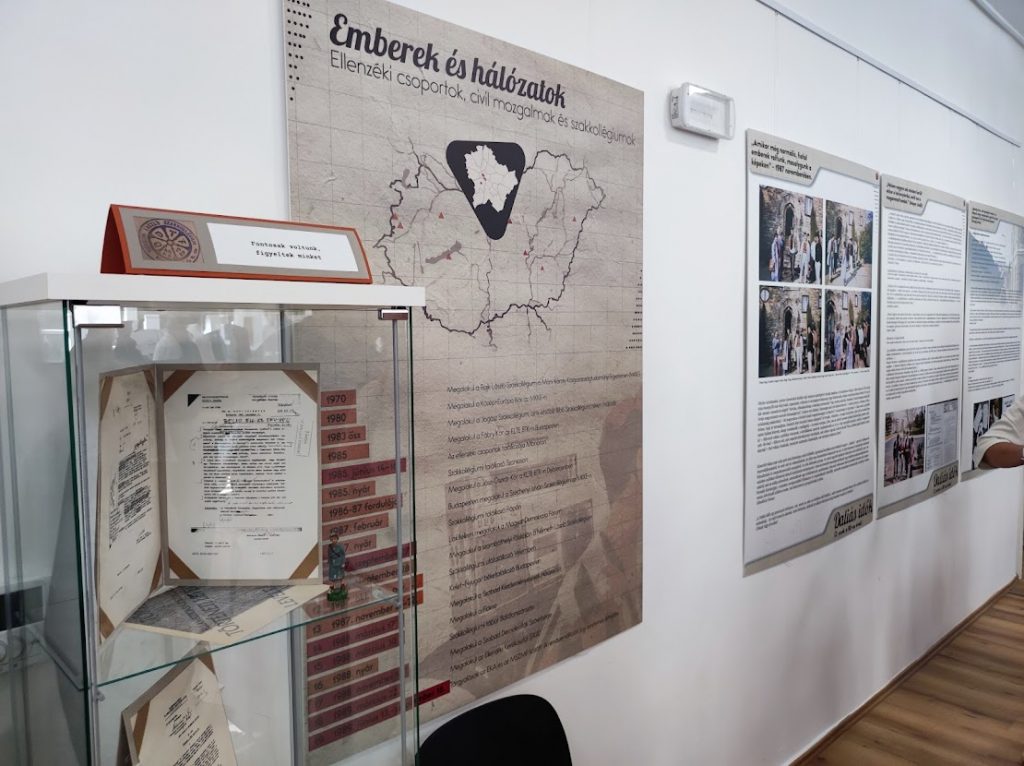
Exhibits at Stirling Villa in Velem (Photo: Ungarn Heute)
At the end of the event, the notary of Vas County, Péter Balázsy, declared that the renovation of the Villa of Stirling, where the book launch took place in Velem, has reached the second phase. The famous house is being revived as a community and tourism center and will be the venue for many similar events in the future.
Article written by Enikő Enzsöl/Ungarn Heute.
Featured photo illustration official Facebook page of iASK